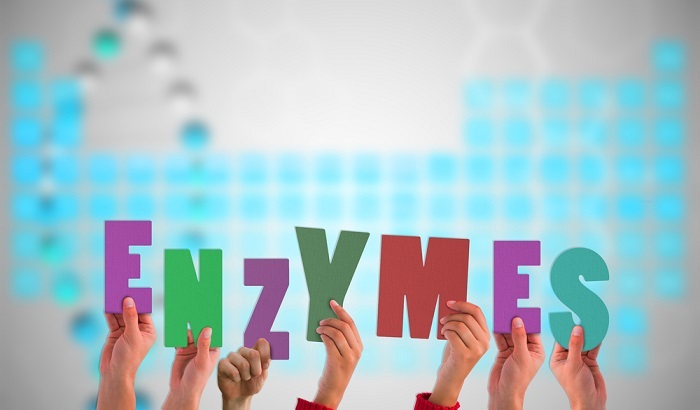
 Data Structure
Data Structure Networking
Networking RDBMS
RDBMS Operating System
Operating System Java
Java MS Excel
MS Excel iOS
iOS HTML
HTML CSS
CSS Android
Android Python
Python C Programming
C Programming C++
C++ C#
C# MongoDB
MongoDB MySQL
MySQL Javascript
Javascript PHP
PHP
- Selected Reading
- UPSC IAS Exams Notes
- Developer's Best Practices
- Questions and Answers
- Effective Resume Writing
- HR Interview Questions
- Computer Glossary
- Who is Who
Application of Enzymes in Biotechnology
Introduction
Enzymes are naturally occurring biocatalysts that have been used extensively in various industries for several decades. They play a vital role in the field of biotechnology due to their ability to catalyze biochemical reactions at a faster rate than traditional chemical catalysts. Enzymes are used in several industrial processes such as food production, textile processing, and pharmaceutical manufacturing.

In this article, we will discuss the various applications of enzymes in biotechnology.
Food Production
Enzymes play a crucial role in food production as they are used to improve the texture, flavor, and appearance of various food products. Enzymes such as proteases, lipases, and amylases are used in the production of cheese, meat, and bread, respectively.
Proteases are used to break down proteins in cheese, which improves the texture and flavor of the product. Lipases are used to produce cheese with a specific flavor by breaking down the fats in the milk. Amylases are used in bread production to break down starch molecules into simple sugars, which are then used as a source of energy by the yeast, resulting in the production of carbon dioxide gas and the rising of the bread dough.
Textile Processing
Enzymes are used in textile processing to enhance the quality and durability of fabrics. Enzymes such as cellulases, pectinases, and proteases are used in the textile industry to improve the softness and feel of fabrics, remove impurities, and improve dye uptake. Cellulases are used to soften and enhance the texture of denim fabrics, resulting in the production of denim with a worn-out look.
Pectinases are used to remove pectin from cotton fibers, which improves dye uptake and enhances the brightness of the color. Proteases are used to remove impurities from silk fabrics, resulting in a more lustrous and soft fabric.
Pharmaceutical Manufacturing
Enzymes are widely used in pharmaceutical manufacturing due to their ability to catalyze chemical reactions that are essential in the production of drugs. Enzymes such as chymotrypsin, trypsin, and pepsin are used in the production of several drugs such as insulin and heparin. Chymotrypsin and trypsin are used in the production of insulin, which is used to treat diabetes. Pepsin is used in the production of heparin, which is used as a blood thinner to prevent blood clots.
Biofuel Production
Enzymes are used in the production of biofuels such as ethanol and biodiesel. Enzymes such as amylases, cellulases, and lipases are used in the production of ethanol and biodiesel. Amylases are used to break down starch into simple sugars, which are then fermented to produce ethanol.
Cellulases are used to break down cellulose into glucose, which is then fermented to produce ethanol. Lipases are used in the production of biodiesel by breaking down triglycerides into fatty acids and glycerol, which are then converted into biodiesel.
Environmental Remediation
Enzymes are used in environmental remediation to break down pollutants into harmless substances. Enzymes such as dehalogenases, esterases, and proteases are used in the bioremediation of contaminated soils and water. Dehalogenases are used to break down halogenated organic compounds, which are commonly found in industrial wastes. Esterases are used to break down esters, which are commonly found in herbicides and pesticides. Proteases are used to break down proteins, which are commonly found in animal waste.
Conclusion
Enzymes play a vital role in biotechnology due to their ability to catalyze biochemical reactions at a faster rate than traditional chemical catalysts. Enzymes are widely used in various industries such as food production, textile processing, pharmaceutical manufacturing, biofuel production, and environmental remediation.
In the food industry, enzymes are used to improve the texture, flavor, and appearance of various food products. In textile processing, enzymes are used to enhance the quality and durability of fabrics. In pharmaceutical manufacturing, enzymes are used to catalyze chemical reactions that are essential in the production of drugs. In biofuel production, enzymes are used to produce biofuels such as ethanol and biodiesel. In environmental remediation, enzymes are used to break down pollutants into harmless substances.
The use of enzymes in biotechnology has several advantages over traditional chemical catalysts. Enzymes are highly specific, which means they only catalyze a particular reaction or set of reactions. This specificity makes enzymes highly efficient and minimizes the risk of unwanted side reactions. Enzymes are also biodegradable and environmentally friendly, which makes them ideal for use in environmentally sensitive applications such as bioremediation.
Enzymes play a crucial role in biotechnology due to their ability to catalyze biochemical reactions at a faster rate than traditional chemical catalysts. Enzymes are widely used in various industries such as food production, textile processing, pharmaceutical manufacturing, biofuel production, and environmental remediation.
The use of enzymes in biotechnology offers several advantages over traditional chemical catalysts, such as high specificity, efficiency, and environmental friendliness. As biotechnology continues to evolve, it is likely that the use of enzymes will become even more prevalent in various industries.

